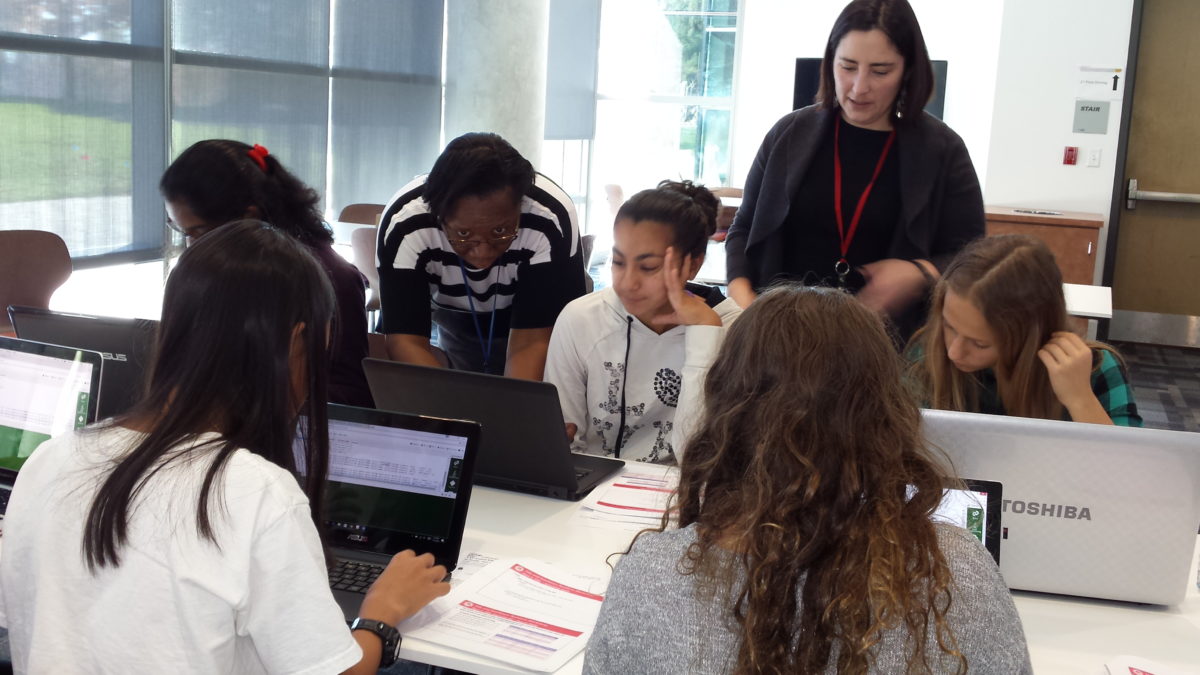At the Center for Transformational Play launched this week within CMU’s School for Computer Science, faculty and students from around the university will be invited to collaborate in research surrounding games, the impact they have on the world, and even participate in designing them.
Jessica Hammer, the director of the center and the Thomas and Lydia Moran Associate Professor of Learning Sciences, has spent her career designing games and then studying the impact they have on the people who play them. She envisions the center being used for things like research opportunities, workshops, collaborations with other departments, and discussions with parents and children about the impact gaming has.
What exactly is transformational play? It’s any time you play a game and it leaves an impact, even when there’s no longer a need to keep score.
“I work on transformational games because I see the ways that people have their life transformed by games on a regular basis,” Hammer told Technical.ly. “I look at all of that energy and joy and passion that’s generated by people having these really meaningful experiences in games.”
Some people become authors because they started writing fanfic of their favorite video games, Hammer observed; others gauge their prospective partners’ temperament over board games. Although you might not think the two are connected, Hammer said she even knew of people who’d taken an interest in statistics to figure out the best course of attack playing World of Warcraft.

Center for Transformational Play’s logo. (Image courtesy of Carnegie Mellon University)
Although the center will be “lean” with a staff of 20 faculty members, the plan is to do a fair amount of collaborating with other departments. The Center for Transformational Play isn’t offering degrees, but it will be working with students from other departments, such as the Entertainment Technology Center, which offer majors and or minors in focuses related to game design.
An additional service the center will be offering is creating games and offering its faculty’s expertise to individuals seeking to make better games.
“If you come to us and you’re a researcher, and you say, ‘Hey, I’m grappling with this problem, how do I make my cybersecurity education more contextually appropriate,’ we can take your body of research,” Hammer said, and “we can help you translate it into a game that uses all that game design craft knowledge, to create something that’s actually sort of playable and desirable.”
We want to be a hub for game research and development. Transformational games can have a real impact on the world.
In the way of teaching, the center hopes to explore the ways in which games can be used to start important discussions on topics ranging from climate change to antisemitism between parents and children. And for all the worry there was in the mid-2000s about video games inspiring violence among adolescents, Hammer said, as someone who has helped design and study the effects of gaming, the research doesn’t necessarily support the worry.
“[There’s] actually some pretty strong evidence that, for example, people worry about video games and violence,” Hammer said. “Well, when a major video game releases, you actually see violence decrease, because people are inside playing the game, instead of out getting drunk or getting into trouble or starting fights.”
Not that she doesn’t understand why some parents of younger children would like to remain vigilant about the games they play. Still, even among young children, Hammer noted that there’d been research that showed kids had started using transformational games, i.e games that teach them, to get more gaming time. Which is part of the reason the center’s interested in contributing to creating games that kids would find fun and parents would feel comfortable with.
Another one of its signature goals will be discovering how to use games to teach about climate change through a collaboration with the University of Pittsburgh and Swissnex, a Bay Area education and research education.
Ultimately, Hammer wants the center to be a go-to place for people interested in making and researching games.
“We want to be a hub for game research and development,” the director said. “Transformational games can have a real impact on the world, and I want to make CMU the best place in the world for designing, studying and building these games.”
Atiya Irvin-Mitchell is a 2022-2024 corps member for Report for America, an initiative of The Groundtruth Project that pairs young journalists with local newsrooms. This position is supported by the Heinz Endowments.Join our growing Slack community
Join 5,000 tech professionals and entrepreneurs in our community Slack today!
Donate to the Journalism Fund
Your support powers our independent journalism. Unlike most business-media outlets, we don’t have a paywall. Instead, we count on your personal and organizational contributions.

When global tech association CompTIA spun off its nonprofit arm, the TechGirlz curriculum went dark

US government’s expiring ‘seed fund’ sends millions to Pittsburgh startups — but Congress may change that

How should tech firms be taxed? Maryland is the latest test case


